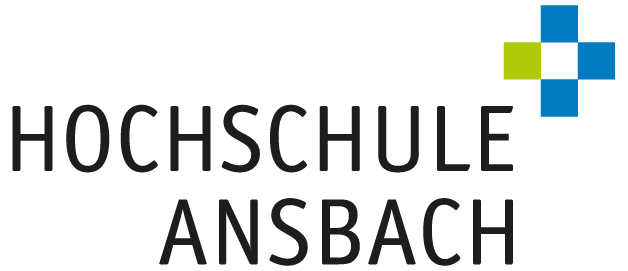SoftSenseValve - Entwicklung eines präzisen, modellbasierten Regelungssystems für die autonome Anpassung der motorischen Verbrennung an die verfügbaren Gasqualitäten zur Maximierung des Wirkungsgrades um 85% von Gasmotoren
Ziel des Projektes ist die Entwicklung eines nachrüstbaren
Gasregelungsventils mit integriertem Gasqualitätssensor zur
Identifizierung der Brenngasqualität und zur gleichzeitigen Anpassung
der Motoreinstellung anhand der identifizierten Gasqualität.
Dabei soll die Verbrennung des Motors bei gleichzeitiger Kostensenkung optimiert werden. Dadurch lassen sich Handlungsempfehlungen für die Einstellung der Motorparameter wie dem Zündzeitpunkt und der Motoraufladung generieren und automatisch implementieren. Dies erlaubt einen dauerhaft hohen Wirkungsgrad von >85%, bei einer variierenden Brenngaszusammensetzung und somit eine höhere Energieeffizienz.
Am Markt erhältliche Regelungssysteme kosten ca. 20.000 € und können eine hohe Präzision nur mit entsprechend langer Verarbeitungszeit erreichen, weshalb sie für die Anpassung der Motoreinstellungen ungeeignet sind. Bedingt durch den hohen Preis ist deren Anschaffung, vor allem für die Betreiber kleiner Anlagen nicht wirtschaftlich. Das neu entwickelte Regelungssystem soll dieses Problem lösen, wodurch sich ein potenzieller Kundenkreis von 40.000 Anlagenbetreibern ergibt.
Fichtner, Johannes; Ninow, Jan; Kapischke, Jörg (2025)
Energies 18 (16), 4339.
This study demonstrates that hydrogen enrichment in lean-burn
spark-ignition engines can simultaneously improve three key performance
metrics, thermal efficiency, combustion stability, and nitrogen oxide
emissions, without requiring modifications to the engine hardware or
ignition timing. This finding offers a novel control approach to a
well-documented trade-off in existing research, where typically only two
of these factors are improved at the expense of the third. Unlike
previous studies, the present work achieves simultaneous improvement of
all three metrics without hardware modification or ignition timing
adjustment, relying solely on the optimization of the air–fuel
equivalence ratio 𝜆.
Experiments were conducted on a six-cylinder engine for combined heat
and power application, fueled with hydrogen–natural gas blends
containing up to 30% hydrogen by volume. By optimizing only the air–fuel
equivalence ratio, it was possible to extend the lean-burn limit from 𝜆≈1.6 to 𝜆>1.9,
reduce nitrogen oxide emissions by up to 70%, enhance thermal
efficiency by up to 2.2 percentage points, and significantly improve
combustion stability, reducing cycle-by-cycle variationsfrom 2.1% to
0.7%. A defined 𝜆
window was identified in which all three key performance indicators
simultaneously meet or exceed the natural gas baseline. Within this
window, balanced improvements in nitrogen oxide emissions, efficiency,
and stability are achievable, although the individual maxima occur at
different operating points. Cylinder pressure analysis confirmed that
combustion dynamics can be realigned with original equipment
manufacturer characteristics via mixture leaning alone, mitigating
hydrogen-induced pressure increases to just 11% above the natural gas
baseline. These results position hydrogen as a performance booster for
natural gas engines in stationary applications, enabling cleaner, more
efficient, and smoother operation without added system complexity. The
key result is the identification of a 𝜆
window that enables simultaneous optimization of nitrogen oxide
emissions, efficiency, and combustion stability using only mixture
control.Simultaneous Reductions in NOx Emissions, Combustion Instability, and Efficiency Loss in a Lean-Burn CHP Engine via Hydrogen-Enriched Natural Gas
DOI: 10.3390/en18164339
Open Access
Peer Reviewed
Fichtner, Johannes; Gegner, Adrian; Ninow, Jan; Kapischke, Jörg (2023)
International Journal of Hydrogen Energy 48, 35280-35290.
This study investigates the potential benefits and drawbacks of adding hydrogen to naturalHydrogen enriched natural gas as fuel for CHP units
DOI: 10.1016/j.ijhydene.2023.05.263
Open Access
Peer Reviewed
gas grids on stationary cogeneration plants. Fuel blended with up to 30% hydrogen by
volume was tested using a commercial six-cylinder spark ignition engine designed for pure
natural gas operation without modifications to the engine. In line with normal practice for
cogeneration plant engines, the power output, the lower heating value of the air/fuel
mixture, the ignition timing and the engine speed were held constant. Results show that
increasing hydrogen concentration led to an earlier peak cylinder pressure, indicating
significantly accelerated combustion. As a result, peak pressures were up to 39% higher
than with natural gas and up to 10% of fuel burned before top dead center. Despite this,
thermal efficiency improved up to 6%. Cycle-by-cycle variation decreased by half, indi-
cating reduced misfires on account of hydrogen. However, nitrogen oxide emissions
increased exponentially with increasing hydrogen amounts. Our findings suggest that
hydrogen-enriched natural gas is a promising fuel for stationary cogeneration plants, but
modifications to engine control settings are necessary to ensure optimal performance and
compliance with nitrogen oxide emission regulations. These modifications might include
adjustments to the mixture control system and ignition timing.
Fichtner, Johannes; Gegner, Adrian; Ninow, Jan; Kapischke, Jörg (2023)
5th International Conference Business Meets Technology, Valencia, Spain.
This study demonstrates the need for novel gas engine control systems for com-Virtual Nitrogen Oxide Sensor for Improved Emission Control in Natural Gas/Hydrogen Cogeneration Power Plants
DOI: 10.4995/BMT2023.2023.16705
Open Access
Peer Reviewed
bined heat and power plants, also known as cogeneration power plants, connected to natural
gas grids. Hydrogen addition to natural gas grids in a range of up to 5% by volume is already
permitted throughout Europe. This offers the possibility to reduce carbon dioxide emissions
of end consumers connected to public natural gas grids and contributes to climate protec-
tion. However, conventional engine controls are not designed for natural gas/hydrogen mixture
operation. We tested fuels with up to 30% hydrogen by volume using a commercial six-cylinder
spark ignition engine, designed for natural gas or biogas operation in power plants. With engine
settings according to usual cogeneration operation, nitrogen oxide emissions increased expo-
nentially with increasing hydrogen amounts. We demonstrate that the usual approach of using
the lower heating value of the fuel mixture to regulate the engine is unable to accommodate the
hydrogen induced changes. For this reason, we developed a mathematical model to determine
the nitrogen oxide emissions based on boost pressure and power output. The idea behind this
novel approach is to regulate the engine based on emissions, regardless of the fuel gas. In this
work the approach for this virtual sensor is described and its performance demonstrated.
Teilprojektleitung
Projektbearbeitung
Projektdauer
01.04.2021 - 31.08.2024Projektpartner
Projektförderung

